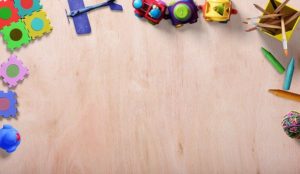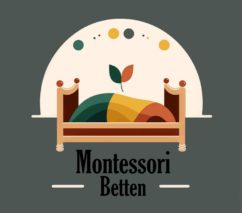Who was Maria Montessori? Montessori is a term that left its mark on education a long time ago, but which has remained modern to this day. Although many people are familiar with the term Montessori, most do not know who is behind the concept or what it represents.
Maria Montessori was born in Chiaravalle, Italy, in 1870. The daughter of a conservative father, she developed an interest in the humanities from an early age, which displeased her father. She therefore began by studying mathematics and engineering, having been refused medicine by the university. After graduating, she became the first woman in Italy to be able to start studying medicine.
After obtaining her doctorate, she took up a post as a child psychiatry intern in Rome. It was here that she wrote her first notes on mentally handicapped children, which were to mark the doctor’s approach. The poor treatment in the paediatric clinic displeased the young doctor, and she wanted to do something about it and create new conditions for the intensive care of sick children. She wanted to help destitute children with mental disorders to progress and lead a dignified life through special education. By studying throughout Europe, Maria Montessori was able to gain experience to develop her own approaches, which are still used today in modern education.
Montessori’s philosophy and its influence on education
Children all over the world can benefit from the approaches of the Italian paediatrician. Although the main approaches were found at the beginning of the 20th century, they are still considered an important feature of pedagogy today. Montessori pedagogy focuses on the development of the child, who can develop skills through autonomous learning. The child should learn through his or her own tasks and not by adult example. Parents and educators should offer children the freedom to learn things for themselves, at their own pace, and thus use their own abilities to accomplish new tasks.
In Montessori’s day, it was not common practice to attribute abilities to children, and even less so to those with mental disorders. It was thought that children learned when they were shown a task. But Mario Montessori’s studies have shown that children themselves develop the ability to master a task individually. By creating a child-friendly environment, children are encouraged to become aware of their own abilities and to develop them in a playful way.
We now know that every child has a personal and individual learning pace and can develop problem-solving skills. Children are encouraged to develop solutions rather than being deprived of these tasks. This is how children can flourish and develop their skills.
What are Montessori toys and cots?
 You can still buy Montessori toys today that aim to develop young children’s abilities in a playful way. More than just a hobby, these educational toys help young children to become aware of their abilities and develop them independently. It’s also important to note that Montessori toys focus on a single sense and stimulate it in a playful way. For example, observation (sense of sight) or construction (motor skills).
You can still buy Montessori toys today that aim to develop young children’s abilities in a playful way. More than just a hobby, these educational toys help young children to become aware of their abilities and develop them independently. It’s also important to note that Montessori toys focus on a single sense and stimulate it in a playful way. For example, observation (sense of sight) or construction (motor skills).
Are there Montessori beds for children?
Maria Montessori recognised that children need their own environment in which they can learn without being disturbed. A safe environment, in which the child can rest and feel at ease, is important for the child’s development. Montessori-compliant beds are on one level, providing a safe place for children to sleep. They don’t need their parents’ help to get in and out of bed, unlike in a conventional cot.
